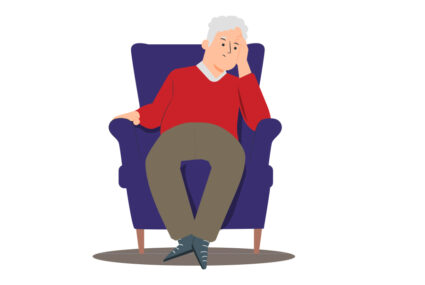You walk into a room and can’t remember why you’re there. You run into an old friend and can’t recall their name. A word is on the tip of your tongue, but you just can’t grasp it. Are these what we jokingly refer to as senior moments, or are they indicators of early-onset dementia?
Sue Wilson, Director of Care at Magnolia Garden Care Centre, has years of experience deciphering benign forgetfulness and the signals of cognitive decline.
“The difference is memory,” says Sue. “You might misplace your keys, but you trace your steps back and eventually find them in your coat pocket. With early onset dementia, you don’t have that eventual recall.”
Sue points out that we all have moments of forgetfulness. “It’s not even fair to call them senior moments because everyone has them: we’re distracted and preoccupied.” However, the signs of dementia are different from forgetting a name, word or keys.
“Perseveration is the term for repetitive actions or language that often indicate lost cognition,” says Sue. “For example, asking the same question again and again despite knowing the answer. Being fixated on something in particular but not being able to retain the information about it. Repeated patterns of speech or behaviour that have no resolution are concerning.”
Forgetting to eat, getting lost in your own home or neighbourhood, and uncharacteristic mood swings or personality changes are also warning signs.
If you’re concerned that these symptoms describe a loved one, or even yourself, there are steps you can take.
First, go to the doctor for a check-up, and get blood work done. Sue notes, “A doctor will rule out other causes of the symptoms you’re experiencing and will be able to perform tests to determine if there is cognitive decline.”
Another good step to take is to connect with the Alzheimer’s Society of BC. “They have the most amazing support and education programs,” says Sue. “They are the best resource for people to navigate the journey.”
Meanwhile, if you’re experiencing the odd ‘senior moment,’ don’t panic; instead, be proactive. The following habits all impact brain health:
- Sleep: a study out of Harvard Medical school found that individuals who slept under five hours per night were twice as likely to develop dementia.
- Regular exercise: the Mayo Clinic confirms that physically active people are less likely to experience a decline in mental function and have lower risk of developing Alzheimer’s Disease.
- Healthy diet: The Alzheimer’s Society notes studies show a diet rich in fruit and vegetables and low in red meat and sugar could help reduce dementia risk.
- Social engagement: the negative impacts of isolation are well known. One study by the National Institutes of Health determines that just 10 minutes of daily social interaction increases performance on cognitive assessments.
- Alcohol consumption: The Alzheimer’s Society confirms that excessive alcohol consumption over a lengthy period can lead to brain damage and may increase the risk of developing dementia.
This article is intended for information purposes only. If you are concerned about a loved one or yourself, please make an appointment with your family doctor.

Comments